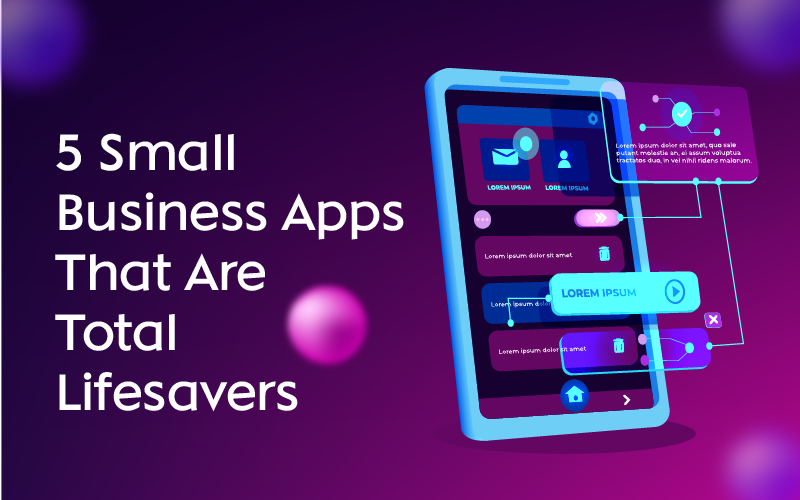Apart from human resources, applications are among the best support systems that have transformed the business landscape. The dependency on computer software is growing every day due to their potentiality in running businesses more smoothly with speedier service delivery to clients and customers. In the case of small businesses, these apps are lifesavers that help to cut down expenses of hiring professionals and complete loads of projects in time.
Here is a list of 5 such lifesaving apps for small businesses that are worth investing in.
1. Picktime
Small businesses run on client meetings and daily customer appointments. Therefore, the manual processes of appointment scheduling via phone calls and emails can be painful for them. It is also complicated to maintain register books and turn pages to remember scheduled appointments. That is why small businesses should use free online appointment scheduling and booking management software like Picktime. It is suitable for all sorts of businesses of any size and industry. Picktime is accessible through any web-enabled device without installation. Its free online calendar service lets the admin efficiently manage daily meetings 24/7, monitor employee work schedules, and assign resources to them at all office locations.
Picktime empowers your customers with flexible self-scheduling of appointments based on your availability through a customized online booking page. You can send automated email and text reminders to clients to reduce no-shows. Picktime integrates with PayPal, Stripe, and Square for accepting advanced online payments. Auto-generate invoices after payment. You can send feedback forms to your customers and clients after every meeting. Get insightful business reports from your Picktime dashboard for free to measure performance!
2. Dropbox
Managing and sharing heaps of files, including documents, images, videos, social media posts, presentations, and much more, are crucial daily tasks of small businesses. As a result, they need an app for editing, storing, and sharing large and complex files with clients. Try Dropbox, a cloud computing app that lets you sync large files and folders across various systems. Just right-click on the folder or file to share or invite people to join your folder or file. You can also share the file link with people. Clients can comment on changes and additional requirements to the shared files in the same place so that you can make quick fixes. Dropbox assures high security for sharing confidential files with its 256-bit AES encryption.
3. Canva
As a small business owner, it will be difficult to hire a team of designers to keep up with the huge demands of your clients. So, often small businesses hire interns and freelancers for such jobs. But, many of them might not be pros at Adobe programs, like Photoshop and InDesign. Hence, Canva will be a good alternative for them. It is a cloud-based designing app with easy-to-edit templates for creating attractive graphics. Share these graphics online via email, download them as an image or document and also print them. The app has both free and paid options available. You can start designing with a blank slate or choose a template, and then use the drag-and-drop feature to play around with hundreds of attractive fonts, stock images, and videos.
4. Evernote
Planning and prioritizing tasks helps small businesses stay on track with their projects. Small business owners should prepare a priority list based on the urgency and importance of every project. Use Evernote, an interesting note-taking app, to organize your work into lists. It resolves the problem of finding a pen and paper to note down important things on the go. You can create and arrange your notes into different notebooks with a single click. Also, make private notes or public notes for your team. You can view your notes on Evernote in multiple modes. Check off completed tasks from the list to avoid confusion. Add images, web page clippings, and audio recordings within your notes for more precise note-taking.
5. MailChimp
Email marketing is a cheaper way of promoting products/services/ideas for small businesses because they cannot afford pricey print and TV ads from the beginning. Moreover, they can target their desired customers/clients and change the audience list as per their preference, in contrast to print ads. Small businesses should use the market leader in email marketing, Mailchimp, for acquiring the best results. MailChimp lets you sync up to 2,000 contacts for free and more for paid options. You can choose from a plethora of email designs and templates and create a campaign. Customize your emails with stock photos or images from your gallery, fonts, colour codes, and fonts. Also, include links to your website, social media profiles, and YouTube videos on the email. You can add your official contact number and address in your emails. After you launch a campaign, MailChimp provides you with detailed analytics of each email campaign with metrics such as percentage of subscriptions, number of subscribers/unsubscribers, open rates, click rates, bounce rate, and so on.
Do not be skeptical of using these modern tools because they cover almost all the daily functions of a small business. But, before investing in these five applications, find out more about their pricing plans, features, and the benefits your business will get after using them. Check for their reviews and user guides online. Start exploring these apps with a demo account. Ask for your team’s suggestion before taking the final call on any productivity app.
Also Read: What is an IT Help Desk?




